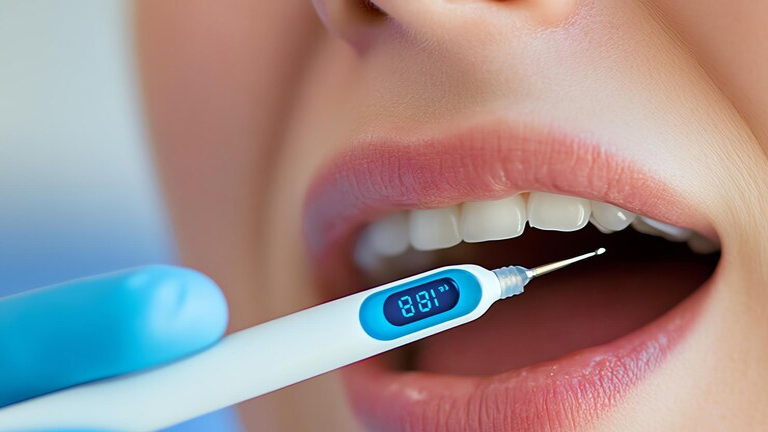Ozempic (semaglutide) is a popular medication used to manage type 2 diabetes and, more recently, for weight loss. While it has proven effective in controlling blood sugar and promoting weight reduction, some users have reported unexpected side effects, including dental issues—commonly referred to as “Ozempic Teeth.”
This article explores the connection between Ozempic and oral health, examining potential side effects, expert opinions, and preventive measures to maintain healthy teeth while using the medication.
Must Check: Ozempic for Weight Loss
What Is Ozempic?
Ozempic is an injectable prescription medication containing semaglutide, a glucagon-like peptide-1 (GLP-1) receptor agonist. It works by:
-
Stimulating insulin production
-
Reducing appetite and slowing digestion
-
Lowering blood sugar levels
Due to its appetite-suppressing effects, Ozempic has gained popularity as an off-label weight loss drug, leading to widespread use beyond diabetes treatment.
What Are “Ozempic Teeth”?
The term “Ozempic Teeth” refers to dental problems reported by some Ozempic users, including:
-
Tooth decay
-
Gum disease
-
Dry mouth (xerostomia)
-
Increased cavities
-
Tooth sensitivity
While not officially listed as a side effect by the FDA, many patients and dentists have observed a correlation between Ozempic use and worsening oral health.
Why Does Ozempic Affect Dental Health?
Several factors contribute to Ozempic-related dental issues:
1. Reduced Saliva Production (Dry Mouth)
Ozempic slows digestion, which can lead to decreased saliva flow. Saliva is essential for:
-
Neutralizing acids
-
Washing away food particles
-
Preventing bacterial growth
A dry mouth increases the risk of cavities, gum disease, and bad breath.
2. Changes in Eating Habits
Since Ozempic suppresses appetite, users may:
-
Eat less frequently, leading to irregular oral hygiene habits
-
Consume more sugary or acidic foods when they do eat
-
Experience nutritional deficiencies affecting gum health
3. Acid Reflux and Vomiting
Some Ozempic users report acid reflux or nausea, which can lead to stomach acid eroding tooth enamel. Frequent vomiting (a possible side effect) also exposes teeth to stomach acids, increasing decay risk.
4. Blood Sugar Fluctuations
Uncontrolled diabetes is linked to gum disease and infections. While Ozempic helps regulate blood sugar, sudden changes can still impact oral health.
How to Prevent “Ozempic Teeth”
If you’re taking Ozempic, follow these dental care tips to protect your teeth:
1. Stay Hydrated
-
Drink plenty of water to combat dry mouth.
-
Use sugar-free gum or lozenges to stimulate saliva.
2. Maintain a Strict Oral Hygiene Routine
-
Brush twice daily with fluoride toothpaste.
-
Floss daily to remove plaque between teeth.
-
Use an alcohol-free mouthwash to avoid further drying.
3. Avoid Sugary and Acidic Foods
-
Limit sodas, candies, and citrus fruits that erode enamel.
-
Rinse your mouth with water after eating.
4. Visit Your Dentist Regularly
-
Schedule bi-annual cleanings to catch early signs of decay.
-
Inform your dentist about Ozempic use for personalized advice.
5. Manage Acid Reflux
-
Sleep with your head elevated.
-
Avoid late-night meals.
-
Take antacids if recommended by your doctor.
Expert Opinions on Ozempic and Dental Health
Dentists’ Perspective
Many dentists report seeing patients on GLP-1 medications (like Ozempic and Wegovy) with increased cavities and gum issues. They emphasize:
“Dry mouth is a major contributor to tooth decay. Patients on Ozempic should be extra vigilant with oral care.”
Medical Professionals’ View
Doctors acknowledge that weight loss medications can indirectly affect oral health but stress that proper hygiene can mitigate risks.
Long-Term Effects of Ozempic on Teeth
If left unaddressed, “Ozempic Teeth” can lead to:
-
Severe tooth decay requiring fillings or root canals
-
Gingivitis progressing to periodontitis (gum disease)
-
Tooth loss in extreme cases
However, with preventive care, these risks can be minimized.
Table: Ozempic Teeth – Causes, Symptoms, and Prevention
| Aspect | Details |
|---|---|
| Main Cause | Reduced saliva production (dry mouth) due to slowed digestion from Ozempic. |
| Common Symptoms | Tooth decay, gum disease, dry mouth, increased cavities, tooth sensitivity. |
| Contributing Factors | Acid reflux, vomiting, dietary changes, blood sugar fluctuations. |
| Prevention Tips | – Drink water frequently. – Use fluoride toothpaste & alcohol-free mouthwash. – Avoid sugary/acidic foods. – Regular dental checkups. |
| Long-Term Risks | Severe decay, gum infections (periodontitis), tooth loss if untreated. |
| Expert Advice | “Patients on GLP-1 drugs should prioritize hydration and oral hygiene.” – Dentists |
Conclusion: Balancing Ozempic Benefits and Oral Health
While Ozempic is effective for diabetes and weight management, users should be aware of its potential impact on dental health. By maintaining good oral hygiene, staying hydrated, and visiting the dentist regularly, you can prevent “Ozempic Teeth” and enjoy the medication’s benefits without compromising your smile.
If you’re experiencing severe dental issues while on Ozempic, consult both your doctor and dentist for tailored advice.
FAQs About Ozempic Teeth
1. Does Ozempic directly cause tooth decay?
No, but side effects like dry mouth and acid reflux contribute to decay.
2. Can Ozempic lead to gum disease?
Yes, reduced saliva and blood sugar changes increase gum disease risk.
3. How can I fix dry mouth from Ozempic?
Drink more water, chew sugar-free gum, and use moisturizing mouth sprays.
4. Should I stop taking Ozempic if my teeth hurt?
No—consult your doctor first. Improve oral hygiene instead.
5. Are other GLP-1 drugs (like Wegovy) also linked to dental issues?
Yes, similar medications may have comparable effects.
By following these guidelines, Ozempic users can protect their teeth while benefiting from the medication’s primary effects.


